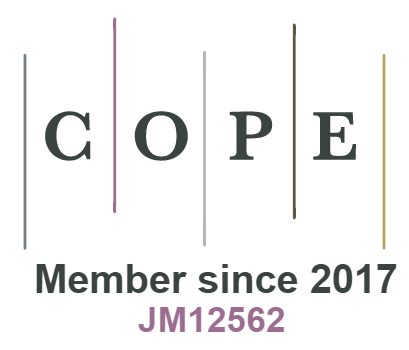Machine Learning as a New Search Engine Interface: An Overview
DOI:
https://doi.org/10.18034/ei.v2i2.539Keywords:
Machine Learning, Search Engine Interface, Search TechnologyAbstract
The essence of a web page is an inherently predisposed issue, one that is built on behaviors, interests, and intelligence. There are relatively a ton of reasons web pages are critical to the new world, as the matter cannot be overemphasized. The meteoric growth of the internet is one of the most potent factors making it hard for search engines to provide actionable results. With classified directories, search engines store web pages. To store these pages, some of the engines rely on the expertise of real people. Most of them are enabled and classified using automated means but the human factor is dominant in their success. From experimental results, we can deduce that the most effective and critical way to automate web pages for search engines is via the integration of machine learning.
Downloads
References
Bollacker, K. D.; Lawrence, S.; and Giles, C. L. (1998). CiteSeer: An autonomous web agent for automatic re- trieval and identification of interesting publications. In Agents '98, 116{123.
Boyan, J.; Freitag, D.; and Joachims, T. (1996). A machine learning architecture for optimizing web search engines. In AAAI workshop on Internet-Based Information Systems.
Cho, J.; Garcia-Molina, H.; and Page, L. (1998). Efficient crawling through URL ordering. In WWW7.
Cohen, W., and Fan, W. (1999). Learning page-independent heuristics for extracting data from web pages. In AAAI Spring Symposium on Intelligent Agents in Cyberspace.
Donepudi, P. K. (2014). Voice Search Technology: An Overview. Engineering International, 2(2), 91-102. https://doi.org/10.18034/ei.v2i2.502
Kaelbling, L. P.; Littman, M. L.; and Moore, A. W. (1996). Reinforcement learning: A survey. Journal of Artificial Intelligence Research 237(285).
Lakshmi Narayana S., Suneetha Devi J., Bhargav Reddy I., Harish Paruchuri. (2012). Optimizing Voice Recognition using Various Techniques. CiiT International Journal of Digital Signal Processing, 4(4), 135-141
Menczer, F. (1997). ARACHNID: Adaptive retrieval agents choosing heuristic neighborhoods for information discov- ery. In ICML '97.
Movva, L., Kurra, C., Koteswara Rao, G., Battula, R. B., Sridhar, M., & Harish, P. (2012). Underwater Acoustic Sensor Networks: A Survey on MAC and Routing Protocols. International Journal of Computer Technology and Applications, 3(3).
Riedmiller, M. (2005). Neural fitted Q iteration–first experiences with a data efficient neural reinforcement learning method.
Torgo, L., and Gama, J. (1997). Regression using classification algorithms. Intelligent Data Analysis 1(4).
Ujwala, D., Ram Kiran, D. S., Jyothi, B., Fathima, S. S., Paruchuri, H., Koushik, Y. M. S. R. (2012). A Parametric Study on Impedance Matching of A CPW Fed T-shaped UWB Antenna. International Journal of Soft Computing and Engineering, 2(2), 433-436.
Wilson, R. F.; Pettijohn, J. B. (2006). Search engine optimisation: A primer on keyword strategies. J. Direct Data Digit.
Witten, I. H.; Nevill-Manning, C.; McNab, R.; and Cunnningham, S. J. (1998). A public digital library based on full-text retrieval: Collections and experience. Communications of the ACM 41(4):71{75.
--0--
Downloads
Published
Issue
Section
License
Engineering International is an Open Access journal. Authors who publish with this journal agree to the following terms:
- Authors retain copyright and grant the journal the right of first publication with the work simultaneously licensed under a CC BY-NC 4.0 International License that allows others to share the work with an acknowledgment of the work's authorship and initial publication in this journal.
- Authors are able to enter into separate, additional contractual arrangements for the non-exclusive distribution of the journal's published version of their work (e.g., post it to an institutional repository or publish it in a book), with an acknowledgment of its initial publication in this journal. We require authors to inform us of any instances of re-publication.









